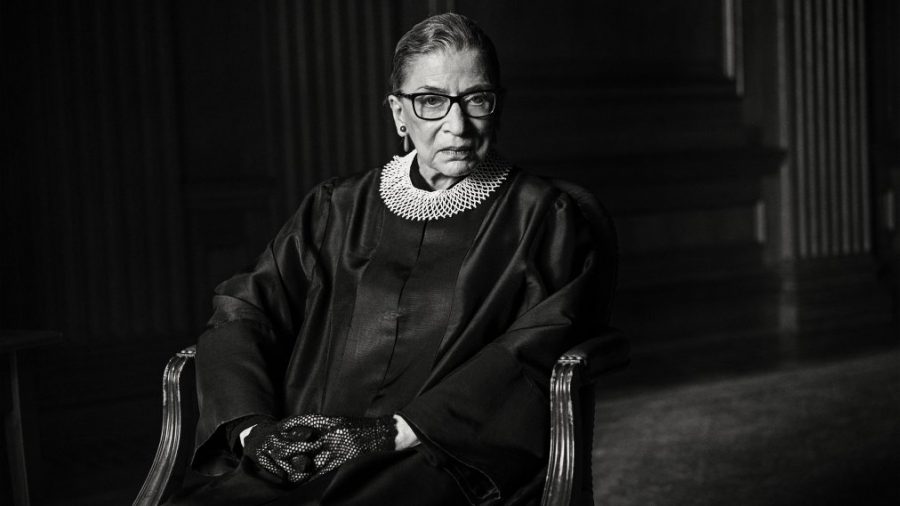Supreme Court Justice Ruth Bader Ginsburg Dies at 87
September 19, 2020
Justice Ruth Bader Ginsburg, known for her pioneering tenure on the Supreme Court, died on Friday due to complications from pancreas cancer. She was 87 years old.
Ginsburg, who rose to fame as a liberal Supreme Court Justice delivering progressive votes for causes including women’s rights, same-sex marriage, and immigration, was appointed in 1993 by President Bill Clinton. She was the second woman to be appointed to the Supreme Court.
Ginsburg consistently fought for equality throughout her career, serving as an advocate for the American Civil Liberties Union prior to her Supreme Court appointment. A graduate from Columbia Law School, Ginsburg faced discrimination from law firms, which often closed their doors to women.
Early on in her rising career, Ginsburg founded the Women’s Rights Project at the ACLU and was a key engineer of a legal strategy designed to bring cases (many of which won) to the Supreme Court that would ensure 14th Amendment Rights extended to women. She also became the first female tenured professor at Columbia Law School.
On the Supreme Court, Ginsburg continued to trailblaze a path for women’s rights. In 1996, Ginsburg authored the now-famous opinion declaring that the Virginia Military Institute could not remain an all-male institution. “The constitutional violation in this case is the categorical exclusion of women from an extraordinary educational opportunity afforded men,” she wrote as she set the foundations for one of the most distinguished tenures on the Supreme Court in recent history.
The constitutional violation in this case is the categorical exclusion of women from an extraordinary educational opportunity afforded men
— Justice Ruth Bader Ginsburg
Ginsburg was especially renowned for her fierce dissent, including a notable one in the case of Ledbetter v. Goodyear (2007), where she called on Congress to override the court decision that limited back-pay for victims of employment discrimination. A new bill was passed in 2009 as a result of President Obama’s administration.
She also wrote dissents for Burwell v. Hobby Lobby (2014), arguing that exempting companies from federal mandates ensuring birth control coverage in employee health plans would set a dangerous and unconstitutional precedent, and Shelby County v. Holder (2013), when a key portion of the Voting Rights Act was struck down by a court decision.
Ginsburg was known as a legal and cultural icon and was famous for her steady support of women’s legal rights throughout her long career, which included 27 years on the Supreme Court. Despite battling cancer on numerous occasions, Ginsburg continued to uphold her busy career well into her eighties, carving an unforgotten path for equal rights.












